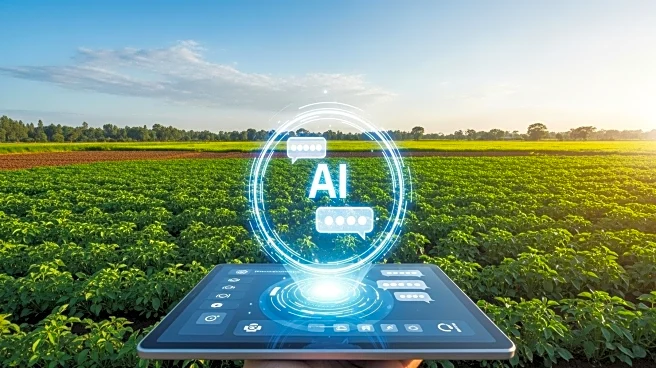What's Happening?
In Malawi, small-scale farmers are turning to a generative AI chatbot, Ulangizi, developed by Opportunity International, to adapt to changing climate conditions. The chatbot provides farming advice, helping farmers like Alex Maere, who lost his crops to Cyclone Freddy in 2023, to diversify and improve yields. Maere successfully grew potatoes alongside his staple crops, significantly boosting his income. The initiative is supported by the Malawian government, aiming to address the country's food crisis exacerbated by climate events and to support the agriculture-dependent population.
Why It's Important?
The use of AI in agriculture is crucial for Malawi, where over 80% of the population relies on farming. The technology offers a potential solution to improve productivity and resilience against climate change. However, challenges such as language diversity, low literacy, and poor digital infrastructure hinder widespread adoption. The success of AI tools like Ulangizi could significantly impact food security and economic stability in Malawi and similar regions, highlighting the importance of integrating technology with traditional farming practices.
What's Next?
The Malawian government plans to expand the reach of the Ulangizi app, but faces challenges in providing necessary infrastructure like smartphones and internet access. Efforts to scale up the program will require addressing these barriers and ensuring the reliability of AI advice to maintain farmers' trust. The initiative's success could serve as a model for other African nations facing similar agricultural challenges.
Beyond the Headlines
The integration of AI in agriculture raises ethical considerations regarding data privacy and the potential for AI errors. Ensuring accurate and culturally relevant advice is critical to prevent negative impacts on farmers' livelihoods. The collaboration between technology and traditional farming practices may offer a sustainable path forward, fostering community support and knowledge sharing.









